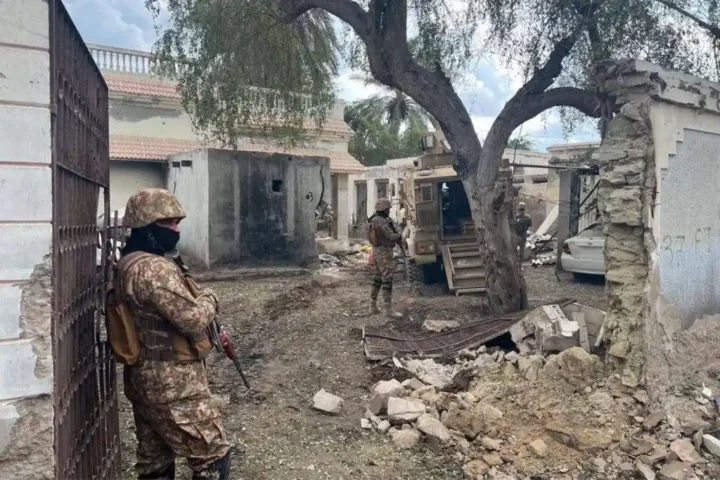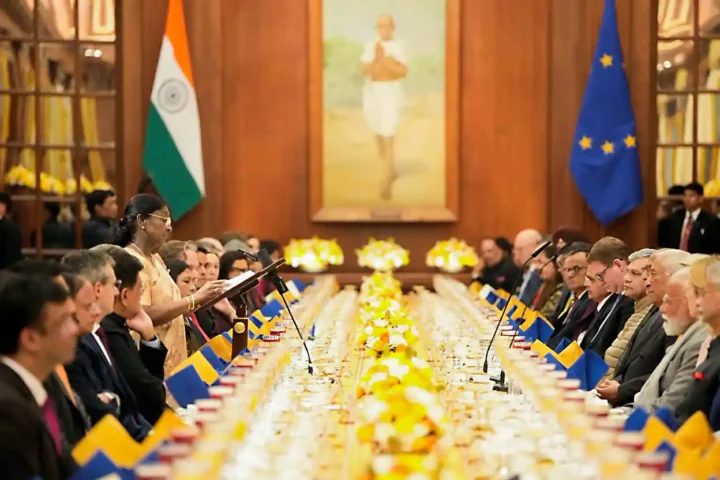Pakistan’s decision to back a United States-drafted United Nations resolution authorizing an International Stabilization Force (ISF) in Gaza – part of President Donald Trump’s 20-point peace plan – has ignited debate at home and abroad. The Israel-Gaza war left the region devastated, with thousands killed on both sides, prompting a fragile ceasefire late in 2024. The new resolution envisions a “Board of Peace” to govern Gaza and a Muslim-majority stabilization force to secure demilitarization. Despite criticism of the resolution from the Palestinian authorities and some Muslim countries, Pakistan voted in favor “to stop the bloodshed [and] save the lives of innocent Palestinians” and ensure a complete Israeli withdrawal. Interestingly, Pakistan’s “iron-clad” partner, China, abstained from voting on the resolution. Consequently, there is an intense debate ongoing within Pakistan over the desperation to vote in favor of the resolution and jeopardize its decades-old policy on Palestine. Many people are blaming the political elite and the military establishment for completely ignoring the ‘Muslim’ cause and siding with the West.
The Security Council vote was 13-0 in favor of the US plan, with Russia and China abstaining. Many observers said this amounted to a radical departure, in effect, tacitly accepting an Israeli role in Gaza, from Pakistan’s historic pro-Palestinian stance. Pakistani Envoy at UN even stressed that Pakistan “does not have diplomatic relations with Israel” and had been “calling on the international community to hold Israel accountable for its war crimes”, underscoring the abrupt reversal. However, it was only lip service from the Pakistani delegation to justify its highly controversial decision, which could spark internal turmoil against the ruling elite.
The Gaza context is dire in Pakistan. While two years of Israel-Hamas conflict left the region in ruins, the recent UN resolution was explicitly sold to break the cycle of violence. Pakistan’s ambassador claimed the need to open “a pathway to Palestinian statehood” and noted that the ISF could only stabilize Gaza if Israel fully withdrew. Yet critics note the contradiction: Pakistan, which “does not recognize Israel” and has repeatedly condemned its Gaza campaign as alleged “war crimes,” is now backing an American blueprint shaped alongside Israel. Observers warned this support could be “misinterpreted as tacit alignment with Israel”.
Domestically, the decision provoked an uproar. Columnists and social-media voices said the government had betrayed the Palestinian cause. One analyst warned that even the promise of humanitarian intent rang hollow if Pakistan’s soldiers became “boots on the ground” under an Israeli-led plan. Opposition politicians are demanding answers from the Shehbaz Sharif-led coalition government, with one senator calling the idea “troubling” and asking whether its merits had been debated in parliament. Another lawmaker warned the ISF risked being a “rebranded extension of occupation,” effectively “sanitizing Israeli aggression through Muslim participation”. Veteran journalist Hamid Mir asked, “If true, who made this decision? Why is this issue not discussed in the Pakistani parliament yet?”. Former minister Shireen Mazari echoed the sentiment, noting the vote had “given control of Gaza to the US & rogue entity Israel” with no path to a Palestinian state.
Critics are particularly questioning the central role of Field Marshal Syed Asim Munir behind the policy shift on the Palestine issue. Munir, who accompanied PM Sharif to Washington and is seen as driving this effort, has cultivated an image as a devout Islamist nationalist. However, his decision to send Pakistani troops to disarm Hamas under a US/Israel-led plan would “directly contradict” Munir’s carefully crafted persona. In a country steeped in anti-Israel sentiment, Pakistani soldiers entering Gaza “not as liberators but as enforcers of a Western-designed peace plan” is widely perceived as “betrayal” among people and Islamist organizations. Many fear Munir is openly trading Pakistan’s ideological commitments for Western favor. Even pro-army figures in Pakistan have urged that such a “wonderful decision” requires “national consensus” and parliamentary debate.
Pakistani media and analysts noted that Islamabad’s own amendments to the UN resolution were discarded entirely. Pakistan’s suggestions, such as a clear path to statehood, a central role for the Palestinian Authority, and stronger UN oversight, were absent from the final draft. Commentators observed that by backing the US plan unchanged, Pakistan had effectively empowered an American-approved administration in Gaza while sidelining Palestinian “self-determination.” Foreign Minister Ishaq Dar clarified that the Trump-Netanyahu announcement was “not our plan” and said Pakistan stood by the earlier eight-nation draft. Whereas one account declared Sharif’s acceptance of the plan “brazenly against the wishes of every single citizen”, underscoring the depth of public anger.
Beyond Pakistan’s borders, the vote has significant ripple effects. By aligning with a US-sponsored plan that China and Russia refused to endorse, Islamabad risks straining ties with those traditional partners. Iran, Turkey, and Qatar, all backers of Hamas, will likely view Pakistan’s participation as hostile, further isolating the country. While some Gulf states and Western observers may regard the move as pragmatic, critics accuse Islamabad of abandoning Muslim solidarity. Several social media posts in Pakistan publicly condemned the UN resolution vote, saying it broke with Pakistan’s long-stated policy and effectively handed Israel a diplomatic victory. Analysts pointed out that by voting yes, Pakistan stood apart from many other non-aligned and Muslim states, highlighting its isolation.
Pakistan’s decision on the Gaza ISF has deepened internal divides and muddied its foreign policy. The Sharif government claims it acted to protect Palestinians and uphold the ceasefire. But many citizens, opposition parties, and Islamist outfits now see it as the opposite: a de facto recognition of Israel and a sell-out of Pakistan’s founding principles. To avoid a brewing domestic crisis in Pakistan, the ruling civilian elites and Field Marshal Munir will have to explain why their controversial policy shift on Palestine was decided without public debate. This episode also underscores deeper civil-military tensions: the Sharif-led coalition government effectively rubber-stamped the army’s decision without legislative oversight, thereby undercutting Pakistan’s democratic process and ideological coherence. Opponents warn that this episode will be remembered as a profound betrayal of the Palestinian cause and will put the lives of many Pakistani soldiers in danger.











